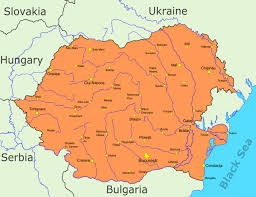
Introduction
The relationship between Romania and Moldova is one steeped in history, marked by cultural ties, political dynamics, and shared challenges. Understanding this relationship is crucial, especially in the context of modern geopolitics and regional stability in Eastern Europe. With Moldova’s aspirations towards European integration and Romania’s role as a supportive neighbor, the topic remains highly relevant to policymakers, historians, and citizens alike.
Historical Context
The two countries share a common heritage, stemming from the historical regions of Wallachia and Moldavia. After the dissolution of the Soviet Union in 1991, Moldova gained independence, though its historical links to Romania remained strong. This connection is evident in the shared language and cultural traditions, with many Moldovans considering Romania as their homeland.
Recent Developments
In recent years, the relationship between Romania and Moldova has intensified, spurred by Moldova’s desire to strengthen ties with the European Union. In June 2022, Moldova was granted EU candidate status, a landmark decision that Romania supported wholeheartedly. The two nations have cooperated on various issues, including energy security, infrastructure projects, and cross-border trade.
Furthermore, there has been a significant influx of Romanian aid to Moldova, especially in response to the economic challenges faced by the latter due to the ongoing conflict in Ukraine. Romanian authorities have facilitated refugee assistance and humanitarian programs which highlight the solidarity between the two nations.
Challenges Ahead
Despite the positive dynamics, challenges remain. Political instability and corruption within Moldova pose hurdles in its EU accession journey, creating a complex geopolitical context. Additionally, the influence of Russia in the region exacerbates tensions and complicates Moldova’s path toward deeper integration with Europe. The historical memories of Russian dominance linger, making Romanian support vital not just for Moldova’s aspirations but for regional stability as well.
Conclusion
In summary, the relationship between Romania and Moldova is multifaceted, built on shared history and cultural ties. The current geopolitical landscape highlights both opportunities for integration and challenges that need addressing. As Moldova navigates its path towards the EU, Romania’s supportive role will be pivotal in fostering a favorable environment for democratic reforms and sustainable development. For citizens in both countries, the growing cooperation signifies hope for a prosperous future, while for policymakers, it underscores the importance of proactive engagement in regional affairs.



